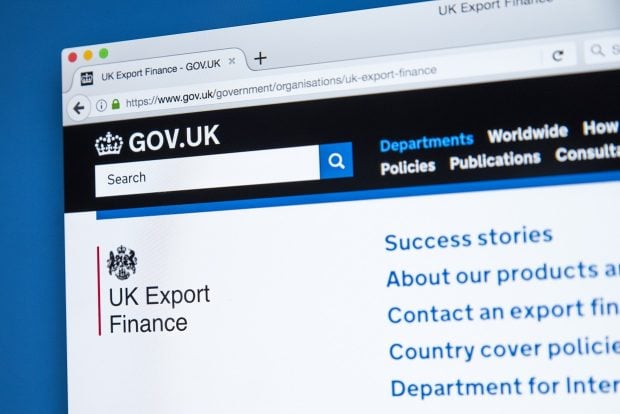The human touch: Five minutes with Matt Briggs of the UK DWP’s Service Modernisation Programme

In this sister series to our ‘Five minutes with’ interviews, we share insights from the civil and public service leaders who will speak at our Innovation conference. Taking place in London on 25 and 26 March, attendees will hear about how their peers are developing new approaches to policymaking and service delivery.
In this interview, Matt Briggs, senior responsible owner at the UK Department for Work and Pensions’ Service Modernisation Programme – who will speak at Innovation in the session Service delivery reimagined – tells GGF about putting the customer at the heart, how the civil service might be different in 25 years’ time, and why football manager Kenny Dalglish is his hero.
Click here to find out more and register for Innovation 2025
What drew you to a career in the civil service?
Having grown up in an East London community where lots of people really struggled, I have always wanted to make a difference to the lives of the types of people I grew up with, including family members and friends. Public service when done well creates opportunities for people’s lives to be improved and community cohesion to be improved – there really is nothing like the civil service in terms of gifting us the opportunity to do that.
What have you achieved in your career that you’re most proud of?
Leading the delivery of the Tell Us Once programme that put the customer at the heart of the service at a time when they are vulnerable. Then, trying to bring together all parties across the public service to make their lives just a little bit easier. That’s what I am trying to recreate in the Service Modernisation Programme, and I am so lucky that within DWP this is at the heart of our organisational values and purpose, underpinned by a passion to support those who need us.
What barriers or challenges have you overcome in your career?
What I perceive as barriers have been self-imposed mainly by my own imposter syndrome, whether that is progressing in my career or a feeling that my voice will be heard in a room full of clever people. However, what others may feel are barriers – being dyslexic for example – I find being a strength (but I recognise that is not the same for everyone).
What more do you want to achieve before you retire?
As senior responsible owner for the Service Modernisation Programme, I am at the forefront of transforming how we administer benefits across DWP, and that’s my mission – we are joining-up multiple DWP services, digitising with a human touch, and equipping the organisation with the tools to continuously modernise. It’s enough to keep me busy for a few years!
What is the best piece of advice you’ve been given in your working life?
Stop trying to be someone else – be true to yourself.
What advice would you give someone starting out in the civil service?
The UK civil service is so broad that you should explore it until you find where your passion, capabilities and role intersect and then you will never look back and you will enjoy every minute, make thousands of friends and feel like you are making a difference every single day.
What do you like most about working in the civil service?
For me, it’s the huge opportunities to genuinely make a difference to society, it’s the fact that you never really know what the next challenge is going to be, and it’s the amazing colleagues you encounter along the way.
And what do you dislike about it?
Pace. I am constantly looking to go further in improving experiences of our customers and am impatient for the changes to be made.
If you could introduce one civil service reform, what would it be?
That the organisational constructs of the UK civil service are seen as pathways to joining up services, not as barriers.
How might the civil service be different in 25 years’ time?
I come from the change environment and I think the biggest differences will be in the trends we are seeing today – greater democratisation of innovation through no-code/lo-code technologies and AI; having to respond to different communities emerging driven to a degree by globalisation; online social media; the human/digital interface being more blurred in public service delivery; different crises to resolve. We have a lot to be proud of and we are held up across the world as a great public service so we shouldn’t also lose our purpose and values.
Which civil servant – past or present – do you most admire and why?
My first boss, an higher executive officer called Myra Traynor. She was the person who made me realise what public service was and that this is a vocation and career not just a job!
Which country’s civil service are you most inspired by and why?
Australia for their passion and sense of purpose for their citizens and believe it or not Vietnam for how quickly they are modernising their welfare state as they build it. Canada is also on a similar journey to DWP. Hearing how they are facing the same challenges as us is very inspiring, in knowing we are not alone or unique in this being hard. We also gain a lot of inspiration from our partnership with Gartner who bring a global perspective, both from government as well as other sectors.
Can you name one lesson or idea from abroad that’s helped you and your colleagues?
Vietnam = do data first. Australia = outlast the resistance and get ready to wear a flak jacket because transformation is hard. We also often think that DWP is way behind our peers. However, the more we have spoken with our cousins across the globe, we realise we are quite rare amongst our peers. This is because we are tackling our modernisation in a truly system thinking way and properly putting the customer at the heart of what we are doing.
Are there any projects or innovations in the UK that might be valuable to your peers overseas?
Our work on the business delivery model is the single most important thing to deliver what the citizens and government need – base it all on evidence and insight and you won’t go far wrong. Also, sharing our evidence that has informed the design could be invaluable and save significant time for other countries. We are after all dealing with people, so their needs do not ultimately vary from country to country.
What attributes do you most value in people?
The first is trustworthiness, followed by energy and passion.
Which three famous people, alive or dead, would you most like to invite to a dinner party?
Nelson Mandela, because of his life experiences; Peter Ustinov, he had the best stories; Jurgen Klopp, you can guess why!
If you weren’t a civil servant, what would you be?
Everyone tells me I’d be a great second-hand car salesman (not sure that’s a compliment!).
Do you have any unusual hobbies?
Not unusual to me, but I play cricket and love karaoke.
Is there something about you that people find surprising?
People outside of work would not believe I’m a senior civil servant.
What is your favourite thing to do at the weekends?
BBQs!
What is your most treasured possession?
Family is an obvious answer, but they aren’t a possession, so then it is my wedding ring.
What is your favourite book?
The Thursday Murder Club series.
What is your dream holiday destination?
I love Disneyworld Orlando.
What was your first car?
A Ford fiesta. I only had it about two days (but that’s another story).
What was the first piece of music you bought?
The Adam and the Ants EP ‘Stand and deliver’.
Who is your hero?
Kenny Dalglish, not just because of football, but because what he did after the Hillsborough disaster (a crush at an English football stadium in 1989 that killed 97 people) was truly admirable. He went to all the funerals, set up a charity, and was always there for the families. He was someone who had a completely different skillset who was put into that environment and led the whole community.
Click here to find out more and register for Innovation 2025





















